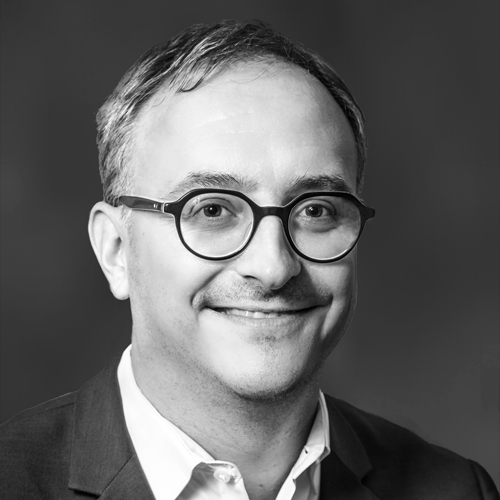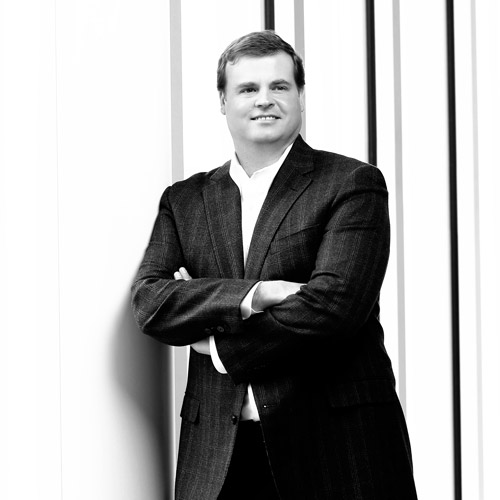With a résumé that spans the globe, Nicolas Carré is not one to back down from challenges. A self-starter with a keen interest in finance, Carré quickly ascended the corporate ladder in France.

After Carré’s three-year stint at PricewaterhouseCoopers as a public accountant—a role he says prepared him to build the basics of finance—the French national took on an accounting manager role for a Lear automotive plant. He was twenty-six years old at the time, managing a plant with 300 people and more than €150 million in revenue. “It was definitely a challenge, but it also taught me a lot of things,” Carré says. “This is really something that I look for in my career—to keep learning.”
Continuing with Lear, Carré bounced around Europe, managing plants in the Czech Republic and in Germany, each time managing larger projects with more revenue. He then landed at Tarkett Group headquarters, a global leader in innovative and sustainable solutions for flooring and sports surfaces, as group financial controller. It was his first position within Tarkett, adding to his corporate experience and technical background. In this role, he also was able to contribute to Tarkett’s 2013 initial public offering (IPO).
Carré believes that his strong international management experience at Lear is part of why he is an effective leader now as chief financial officer of Tarkett in North America. “I didn’t come with any preconceived ideas saying that, ‘So I am CFO of Tarkett North America coming from corporate headquarters, and it is a French company, so guys, you will have to follow my directions,’” Carré says. Instead, he was careful to assess the existing corporate culture, choosing to work within those confines rather than against them.
The native French citizen has lived and worked in three countries previously, so when he moved to the United States he knew how to assimilate. At Tarkett, multinational experience like Carré’s is valued and rewarded. He explains that all of the Tarkett Group CFOs’ direct reports have had experience in another country’s market, which Tarkett believes makes the company stronger.
In addition to providing increased business acumen, Carré says that being an expatriate can teach one to approach problems without any preconceived notions. “It was a tremendous experience to see early in my career that there is not a single way, a single culture of working, even within the same company,” he says.
In Germany, he found that working until 10 p.m. every night was considered inefficient, whereas in France, it showed a person’s commitment. When moving between these different work cultures, Carré is careful to spend the first few months adapting and observing. Afterwards, he tries to see what can be optimized and what can be incorporated from headquarters.
On moving from corporate headquarters of Tarkett in France to its North America team, Carré says, “It really creates a bridge between our division in North America and our headquarters.” A believer in letting his team develop their own skills, Carré feels that as a leader, it is important to monitor direct reports but not to micromanage. A big component of that is to make sure that the right system of checks and balances is already established. “Make sure you have the right controls in place,” he explains. “I am trying to give as much freedom as I can to my team.”
As the CFO of the North American division, Carré maintains that his role should be more focused on overall strategy than just the bottom line. While cost control is an aspect of his role, he believes in thinking more like a businessperson than an accountant. “There is no disconnect between being a sustainable company while being efficient and creating profitability,” he says. “Our waste generation is lower, which also helps our sustainability objectives in the long term.”
Currently, Tarkett is in the middle of a big push to use more recycled materials. It sources only biodegradable, recycled, and environmentally friendly raw materials for its flooring—which the Tarkett team believes is very important to their customers. The company is also especially excited for is its application of “cradle-to-cradle” principles, which it launched in 2011, according to Carré. With the aim of ameliorating every stage of its clients’ lives, this initiative upends the typical production process, focusing on sourcing the best materials for the environment and for the consumer with a closed-loop, circular-design approach in mind. Calling it Tarkett’s “philosophy,” Carré believes that this attention to detail and the Earth is what makes Tarkett an industry leader.
Another aspect of his role as Tarkett’s CFO is constantly asking questions, Carré says. He adds that it is important to be constructive and to not be negative toward new ideas. By playing devil’s advocate, Carré believes he is able to help other business leaders think through their ideas and evaluate all possible consequences, which leads to what he calls “a positive evolution.”
